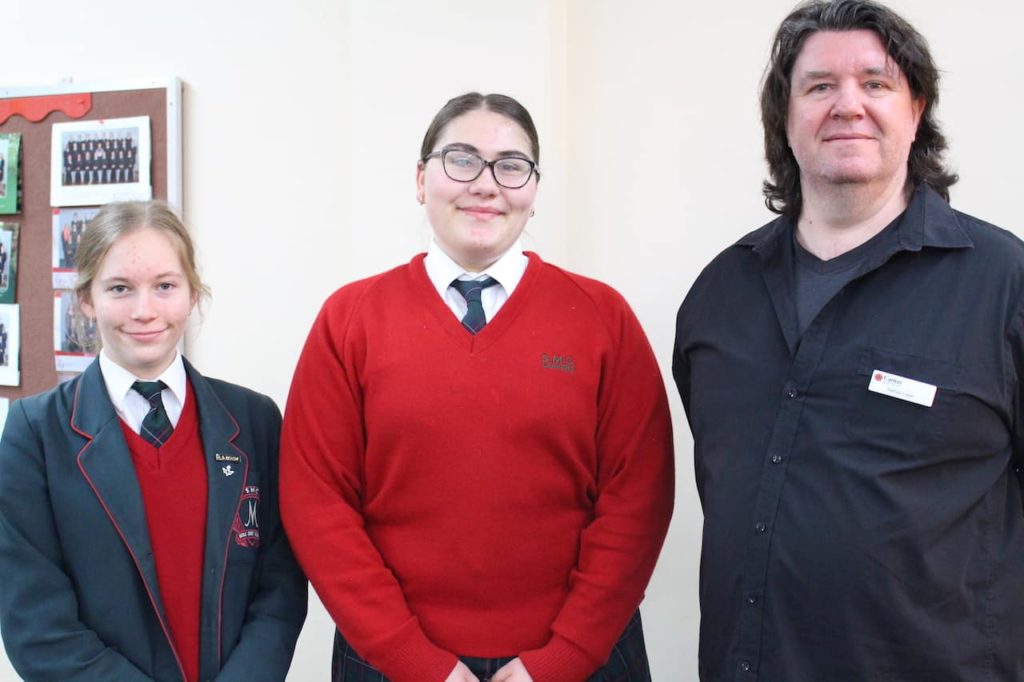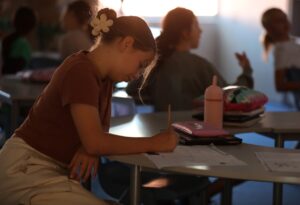
Nathan Leber is the Justice Educator for the Western Region of Caritas Australia. He is responsible for promoting the work of Caritas Australia and awareness of social justice issues that currently impact the world. Nathan aims to engage students and teachers toward action on these issues. He says, “It all starts with education, then inspiration, then action.”
Nathan visited Santa Maria College to speak to the Social Justice Group on their Reflection Morning. He spoke to our girls about the extent and impact of the worldwide refugee crisis. Afterward, he was kind enough to answer some questions for us so that his messages could reach you too.
What were the key social justice issues that you shared with students?
I spoke about the refugee crisis and, in particular, the impact on mental health in refugee children. With over 20 million refugees in the world according to UN Refugee Agency, we need to start to look to solutions to this problem.
Unfortunately, the invisible scars of this crisis do not end with resettlement, particularly in children. Many have witnessed atrocities too horrible to imagine, and without prolonged stability in a predictable, responsive and secure environment, mental health concerns will continue to grow. Some experts in the area of refugee psychiatry are calling this ‘Human Devastation Syndrome’.
I hope I showed the students that when we use detention as a deterrent or punishment, what we are actually doing is making the suffering of asylum seekers the purpose of the detention and not just an unintended consequence.
With regard to refugees, what is the position of Pope Francis and the Catholic Church?
Pope Francis is very clear about our obligations to refugees. In 2014, he said, “We ourselves need to see, and then enable others to see, that migrants and refugees do not only represent a problem to be solved, but are brothers and sisters to be welcomed, respected and loved.”
In 2015, he reminded us that “Behind these statistics are people, each of them with a name, a face, a story and an inalienable dignity which is theirs as a child of God.” In 2018, he said, “Every stranger who knocks at our door is an opportunity for an encounter with Jesus Christ, who identifies with the welcomed and rejected strangers of every age.”
Our Catholic Teachings illustrate that every single person is made in the image of God and this gives them a right to dignity, respect and justice.
What can members of our community do to help?
The first thing anyone can do is care. The value of any human being is immeasurable, and whilst we might try to justify our fears, when we learn more about the suffering and the extent of the problem, it becomes increasingly difficult to condone our treatment of refugees and asylum seekers both internationally and in Australia.
The next step is awareness and solidarity. Knowledge requires us to make right the injustices and this often starts with informing others about their misconceptions, and standing firm with our fellow companions in our Common Home.
Finally, we need to advocate for refugees and asylum seekers by putting pressure on our governments towards a more compassionate approach. A good place to start is the Caritas initiative ‘Share the Journey’ https://www.caritas.org.au/act/share-the-journey/.









